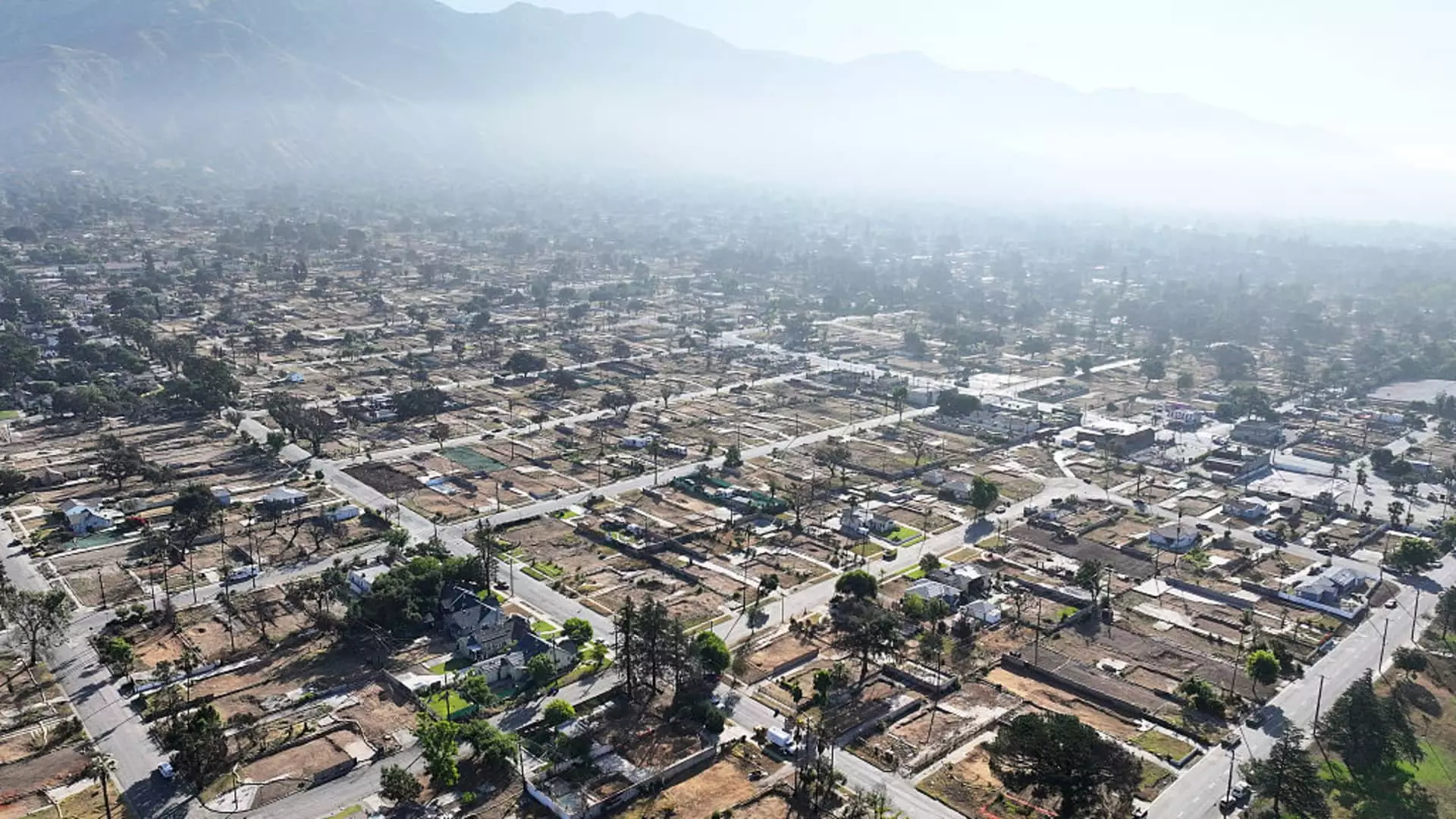In a landscape where economic power often tilts heavily in favor of financial institutions, California’s recent legislative move offers a glimmer of hope for the everyday homeowner. The bill’s passage signifies a deliberate push to address a glaring imbalance: when disaster strikes, homeowners are left waiting—and often losing out—on the interest earned on insurance payouts held in escrow by lenders. It is a clear, albeit overdue, acknowledgment that banks and mortgage servicers should not be the primary beneficiaries of homeowners’ misfortunes.
The core of this legislation recognizes a fundamental fairness principle—that individuals who lose their homes due to natural disasters deserve more immediate and equitable access to their insurance funds. Previously, lenders enjoyed the financial benefits of interest accrued on escrowed funds, without any obligation to share or pass those gains back to the homeowners they serve. This practice, while technically legal, reflects an troubling prioritization of bank profits over homeowner hardship, especially in moments when support and fairness are most desperately needed.
The Power of Legislation as a Fairness Catalyst
This bill is a testament to how courageous legislative action can challenge systemic inequalities entrenched in financial practices. By mandating a minimum interest rate of 2% on insurance funds held in escrow after catastrophic events, California shifts some control and benefits back into the hands of the homeowners. It is a modest yet significant step toward restoring trust and fairness in a system that too often leaves vulnerable victims in the dust.
The timing and context of this law could not be more critical. California experienced unprecedented wildfires earlier this year, devastating thousands of homes and displacing countless residents. During such periods of chaos and upheaval, homeowners often find themselves in limbo—waiting months or even years for insurance payouts to be fully released. Meanwhile, the lender pockets the interest accrued on those funds, effectively profiting from the homeowner’s misfortune. This practice is not merely a technicality; it symbolizes a systemic imbalance that fosters resentment and perceived injustice.
This legislation will influence both existing escrowed funds and future insurance payouts, ensuring that the question of fairness isn’t left to chance or the goodwill of an often detached financial industry. It is a move that solidifies the idea that consumers should not have to rely solely on moral appeals to get their fair share but should instead have legal protections that rectify these asymmetries.
Political Will and the Broader Fight for Fairness
The successful passage of this bill also underscores the importance of political courage. Governor Gavin Newsom’s support reflects a recognition that safeguarding homeowners’ rights is not merely a matter of policy but a moral imperative. His framing of the legislation as a “commonsense solution” encapsulates the real-world impact of thoughtful, centered liberal policies—those that advocate for fairness without falling into extreme partisanship but instead focusing on the common good.
Yet, underlying this victory is a broader critique of the financial industry’s longstanding priorities. The fact that such a bill needed to be introduced highlights how the system is often skewed in favor of profit, sometimes at the expense of those most in need. It exposes the persistent vulnerability of homeowners, especially in disaster-prone states, and the systemic obstacles they face when trying to recover from profound loss.
While some may argue that lenders deserve to retain interest for their administrative burdens, the reality is that this practice disproportionately disadvantages homeowners already battling emotional and financial trauma. Rebuilding a life after a disaster requires every resource possible—and the interest from escrowed funds, however small, can contribute meaningfully to such recovery efforts.
Progress Should Be a Catalyst for Further Change
This legislative development is a crucial, necessary step in redefining the relationship between homeowners and lenders. Still, it also serves as a wake-up call for more comprehensive reforms. For instance, what other unfair practices are quietly embedded within the financial system that continue to disproportionately burden those in distress?
The fight for fairness in disaster recovery should go beyond interest payments. It should entail rigorous oversight, stricter transparency, and an acknowledgment that housing stability is a fundamental human right. Lawmakers and advocates must view this victory as an opening, an opportunity to push further for policies that prioritize human dignity over banks’ bottom lines.
Ultimately, empowering homeowners in moments of crisis is an essential ingredient for a just society. Legislation like this is a recognition that societal well-being depends on protecting the vulnerable and ensuring that those who suffer losses do not become captive to predatory financial practices. To truly foster resilience and fairness, reforms must continue—not just in California, but across the country.


Leave a Reply